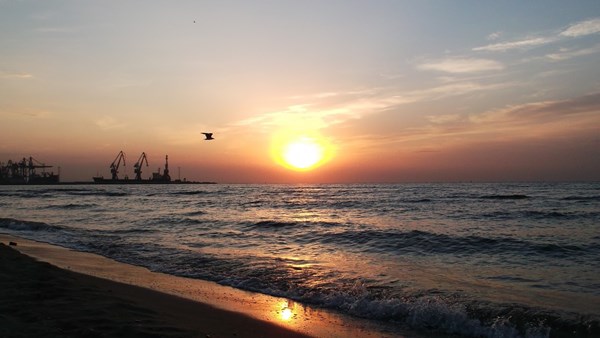Ukraine considers establishing mandatory maritime border with Russia
Oleksandr Shchyptsov, director of the State Hydrographic Service of Ukraine (which falls under the Ministry of Transport), has proposed that Ukraine and Russia negotiate the establishment of a maritime border between them, the department’s site reports.
“Taking into account the norms of international maritime law and the consultations we have had with leading international experts on matters of maritime delimitation, we suggest that we consider the option of starting a mandatory negotiation procedure with the Russian Federation regarding the establishing of a maritime border,” he said.
The State Hydrographic Service noted that in 2003, Russia and Ukraine signed a treaty to cooperate in the use of the Sea of Azov and the Kerch Strait, according to which the sea would be delimited in accordance with an agreement that they would conclude. “But such an agreement was not concluded, a maritime border between Ukraine and Russia is effectively lacking,” the department added.
Without establishing a maritime border, Ukraine cannot exercise its sovereignty over most of its territorial sea or implement its rights within its exclusive economic zone, including the use of marine resources, the department pointed out.
An international commission on delimitation could be formed on the basis of Article 298 Annex V of the UN Convention on the Law of the Sea, of which Russia and Ukraine are both signatories. There is already a precedent of mandatory delimitation. In 2018, Australia and East Timor signed a border agreement based on the results achieved by a commission formed at East Timor’s initiative.
According to the agreement from 2003, the Sea of Azov and the Kerch Strait are the internal waters of both Russia and Ukraine. In November 2018, Russia border guards seized three Ukrainian ships that were attempting to pass through the Kerch Strait. The Russians accused the Ukrainian sailors of violating the border and arrested them. They were held in Russian prison until September 2019, when they were released as part of a prisoner exchange between Russia and Ukraine.
In February this year, then Ukrainian Foreign Minister Pavlo Klimkin threatened to break off the agreement on the Sea of Azov, noting that such a decision “is not a panacea” and that in order to achieve a result, Kyiv needs to operate simultaneously in the spheres of security, economics and law.
